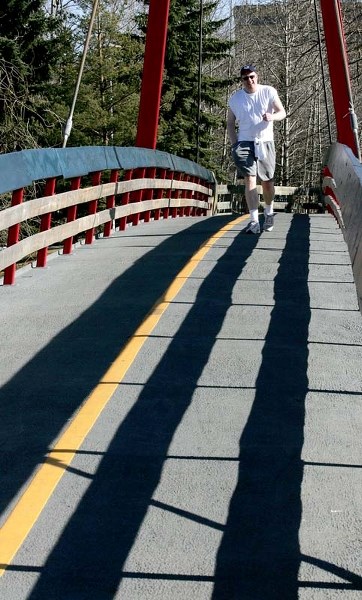Whether it’s hitting a boot camp class at the crack of dawn, or winding down your evening with a late-night jog, most exercise experts would agree that exercise at any time of day is better than none at all.
However, depending on your fitness goals – how likely you are to stick to your exercise routine and how well you perform while doing it – the hour hand on the clock may make a difference.
Research has shown that the body’s circadian rhythms – mental, physical and behavioural changes that follow a 24-hour cycle – influence when you sleep, when you rise, hormone release and body temperature.
Circadian rhythms impact endurance during aerobic activities such as long-distance cycling, strength and power in anaerobic activities such as resistance training and overall motor coordination.
“Later in the evening, your body’s basal metabolic rate increases which results in a higher core body temperature and a higher heart rate,” explained Kory Howard, a certified personal trainer at St. Albert Physical Therapy & Sports Injury Clinic. When the core body temperature is higher, muscles are more adaptable and energy metabolism is increased.
Although results are mixed, a recent review paper published by researchers from Australia and New Zealand revealed that several studies found aerobic activity later in the day resulted in increased oxygen uptake, also known as VO2max.
Similarly, increased strength, power and better coordination during anaerobic workouts were also being correlated to increased core body temperature later in the day.
Although the American College of Sports Medicine does not recognize that time-of-day has a significant impact on aerobic exercise, it notes that muscle strength and flexibility, as well as resistance to muscle injury are greater in the afternoon and early evening.
Howard acknowledged that physical gains from exercising at different times of the day aren’t massive; the time of day you work out and how well you stick to your routine comes down to personal preference.
“The benefits you get throughout the day are minimal so it would perhaps not (be) worth rescheduling your entire day to try and take advantage of those different gains,” he said.
Time sensitive biological rhythms, or chronobiology, may not have a marked effect on a person that exercises a couple of times a week, but for an athlete training for an event, time of day can make all the difference.
“As your peak event gets closer, you want to be training to replicate the conditions of your event,” advised Howard, who admitted he had difficulties re-setting his circadian rhythm earlier this month for a race called the Sinister 7 in Crowsnest Pass.
“I normally train at night and I had a race start time at seven in the morning, my body wasn’t used to it so I definitely felt the negative effects of muscle cramping … I had an awful time.”
“I had a second leg later in the evening around my normal time of exercising and I felt much better. It was night and day,” he said.
Aside from concluding that biological rhythms have a major impact on athletic performance, the review paper also highlighted the importance of active warm-ups – whether through a short jog or dynamic stretching – especially when exercising in the morning or in cold environments.
“A good warm up can mimic that increase (in) body temperature from your circadian rhythms later in the day, raise your heart rate and allow you to take the gains of increased performance,” added Howard.




